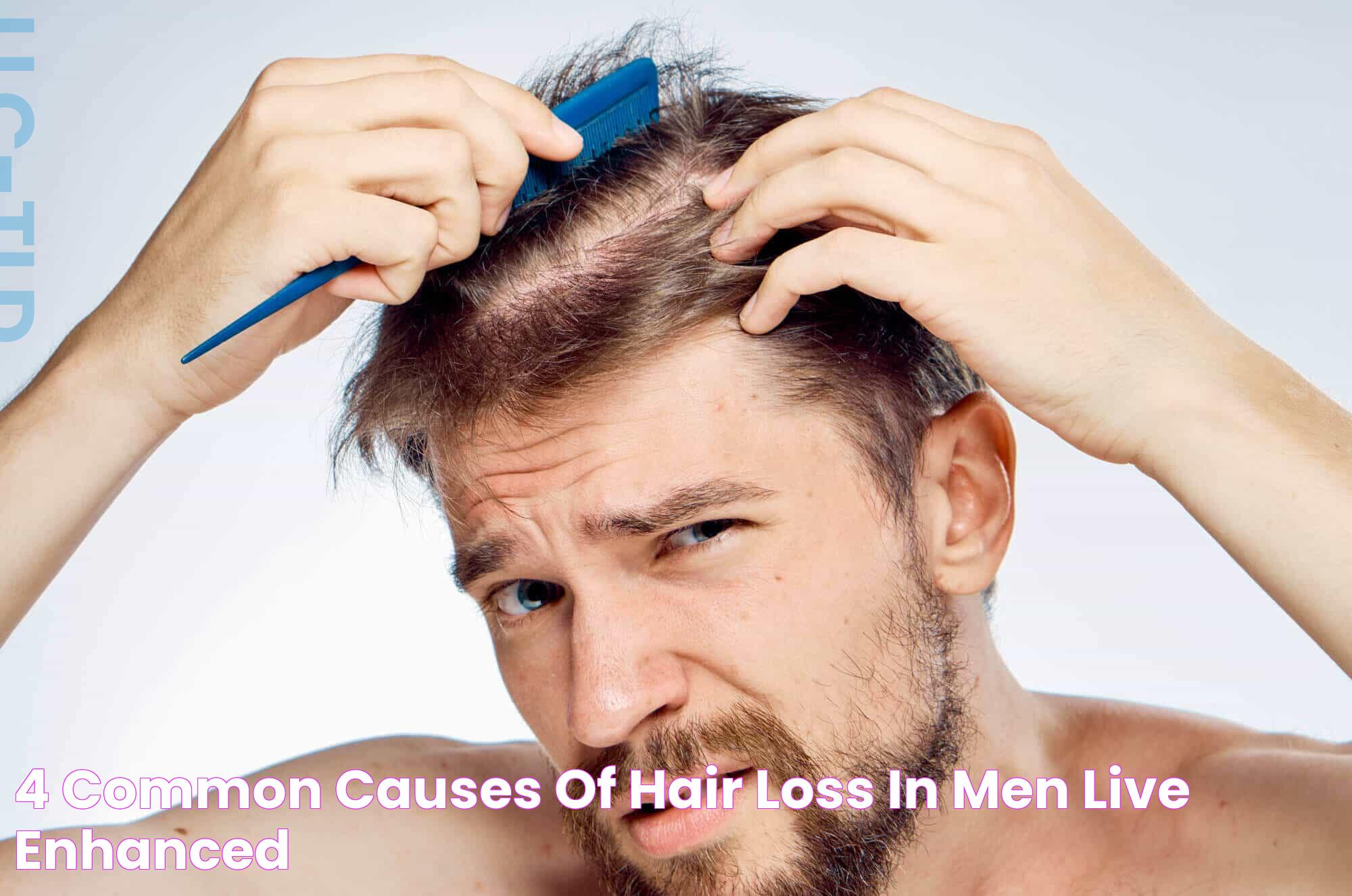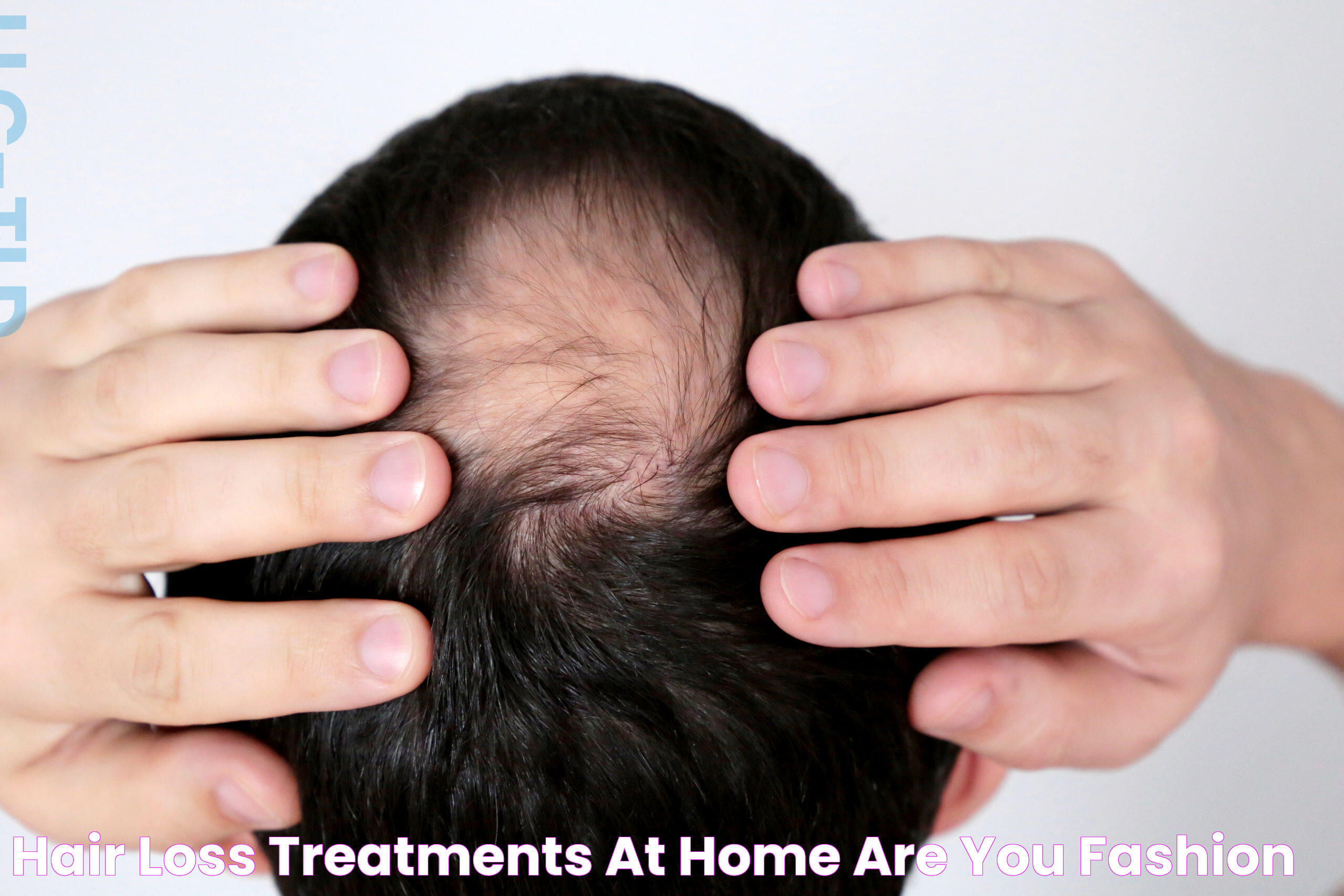Hair loss can be an unsettling experience that affects individuals both psychologically and physically. It is a common condition that impacts millions of people worldwide, transcending age, gender, and lifestyle. Understanding the nuances of hair loss, its causes, and potential treatments can empower individuals to make informed decisions about their hair health.
The journey to managing hair loss begins with identifying its root causes. Whether it's genetics, hormonal changes, or external factors like stress and diet, pinpointing the trigger is crucial for effective treatment. With advancements in medical science and technology, there are numerous options available today, ranging from medications to surgical interventions and natural remedies.
In this comprehensive guide, we will explore the multifaceted aspects of hair loss, delving into the biological mechanisms, potential treatments, lifestyle modifications, and preventive measures. By the end of this article, readers will have a clearer understanding of how to tackle hair loss and maintain healthy, vibrant hair.
Read also:Exes And O A Deep Dive Into Its Influence And Impact
Table of Contents
- What Causes Hair Loss?
- Genetic Factors and Hair Loss
- How Do Hormonal Changes Affect Hair Loss?
- The Impact of Lifestyle and Diet on Hair Loss
- Can Stress Cause Hair Loss?
- Medical Conditions Linked to Hair Loss
- Effective Medications and Treatments for Hair Loss
- Surgical Options: Hair Transplant and Beyond
- Natural Remedies to Combat Hair Loss
- How to Prevent Hair Loss?
- The Role of Hair Care Products in Hair Loss
- Why Is Scalp Care Important for Preventing Hair Loss?
- Latest Research and Innovations in Hair Loss Treatment
- Frequently Asked Questions
- Conclusion
What Causes Hair Loss?
Hair loss, medically known as alopecia, can be attributed to a variety of factors. Understanding these causes is essential for devising an appropriate treatment plan. The following are some common causes of hair loss:
- Genetics
- Hormonal changes
- Medical conditions
- Medications
- Poor nutrition
- Stress
- Physical trauma or injury to the scalp
Each of these factors can play a role in the thinning or loss of hair, and in many cases, multiple factors may contribute simultaneously.
Genetic Factors and Hair Loss
Genetics is often the primary factor in hair loss, particularly in cases of androgenetic alopecia, commonly referred to as male or female pattern baldness. This hereditary condition is influenced by genetic predisposition and hormonal changes, typically leading to a predictable pattern of hair thinning over time.
Research has identified specific genes associated with hair loss, although the exact mechanism is still being studied. Family history plays a crucial role, and those with a close relative experiencing hair loss are at a higher risk of developing the condition themselves.
How Do Hormonal Changes Affect Hair Loss?
Hormonal fluctuations can significantly impact hair growth. Conditions such as pregnancy, menopause, thyroid disorders, and polycystic ovary syndrome (PCOS) can lead to changes in hormone levels, potentially resulting in hair loss. The hormones most commonly linked to hair loss are androgens, which include testosterone and dihydrotestosterone (DHT).
In cases of hormonal hair loss, addressing the underlying hormonal imbalance is key to managing the condition effectively.
Read also:Fusion Nails The Ultimate Guide To Nail Art Mastery
The Impact of Lifestyle and Diet on Hair Loss
A balanced diet and healthy lifestyle are vital for maintaining optimal hair health. Nutritional deficiencies, particularly in iron, zinc, and vitamins such as biotin and vitamin D, can contribute to hair loss. A poor diet lacking essential nutrients can weaken hair follicles, leading to thinning and shedding.
Engaging in regular physical activity, managing stress, and avoiding harmful habits like smoking and excessive alcohol consumption can help support hair health and prevent hair loss.
Can Stress Cause Hair Loss?
Yes, stress is a known trigger for hair loss, often leading to a condition known as telogen effluvium. This occurs when significant stress causes hair follicles to enter a resting phase prematurely, resulting in increased shedding. Stress-related hair loss is typically temporary, and hair growth often resumes once the stressor is resolved.
Practicing stress management techniques, such as meditation, yoga, and deep breathing exercises, can help mitigate the effects of stress on hair health.
Medical Conditions Linked to Hair Loss
Several medical conditions are associated with hair loss, including autoimmune diseases like alopecia areata, lupus, and scalp infections such as ringworm. These conditions often require medical intervention to address the underlying cause of hair loss.
Treating the medical condition itself is often necessary for hair regrowth. Consulting a healthcare professional can provide an accurate diagnosis and appropriate treatment plan.
Effective Medications and Treatments for Hair Loss
Numerous medications and treatments are available to combat hair loss, with varying degrees of effectiveness. Common options include:
- Minoxidil: A topical treatment that stimulates hair growth.
- Finasteride: An oral medication that reduces DHT levels and promotes hair growth.
- Corticosteroids: Used to reduce inflammation and treat autoimmune-related hair loss.
- Platelet-rich plasma (PRP) therapy: Involves injecting a concentration of platelets into the scalp to stimulate hair growth.
Each treatment option has its benefits and potential side effects, so consulting with a healthcare professional is essential to determine the most suitable approach.
Surgical Options: Hair Transplant and Beyond
For individuals seeking more permanent solutions to hair loss, surgical options like hair transplantation may be considered. Hair transplant procedures involve moving hair follicles from one part of the body to areas experiencing thinning or baldness.
There are two main types of hair transplant procedures:
- Follicular Unit Transplantation (FUT): Involves removing a strip of scalp and transplanting individual follicular units.
- Follicular Unit Extraction (FUE): Involves extracting individual hair follicles and transplanting them to the desired area.
Surgical options can provide significant improvements in hair density and appearance, but they come with certain risks and costs that should be thoroughly considered.
Natural Remedies to Combat Hair Loss
Many individuals turn to natural remedies to address hair loss, seeking options that are perceived as gentler and less invasive than conventional treatments. Some popular natural remedies include:
- Essential oils: Such as rosemary, lavender, and peppermint, which are believed to promote hair growth.
- Herbal supplements: Like saw palmetto and ginseng, which may support hair health.
- Dietary changes: Incorporating nutrient-rich foods to support hair growth and overall health.
- Scalp massage: Enhances circulation and may stimulate hair growth.
While some individuals report positive results from natural remedies, scientific evidence supporting their effectiveness is limited, and results can vary.
How to Prevent Hair Loss?
Preventing hair loss involves adopting a proactive approach to hair care and overall health. Some effective preventive measures include:
- Maintaining a balanced diet rich in vitamins and minerals.
- Practicing good hair hygiene and using appropriate hair care products.
- Avoiding excessive heat styling and chemical treatments.
- Managing stress through relaxation techniques and regular exercise.
Regular check-ups with a healthcare professional can also help identify any underlying conditions that may contribute to hair loss.
The Role of Hair Care Products in Hair Loss
Hair care products can significantly impact hair health, with certain products contributing to hair loss if not used correctly. Products containing harsh chemicals, sulfates, and parabens can weaken hair and lead to breakage and thinning.
Choosing hair care products formulated with natural ingredients and designed for your specific hair type can help maintain healthy hair and reduce the risk of hair loss.
Why Is Scalp Care Important for Preventing Hair Loss?
Scalp care is a critical aspect of hair health, as a healthy scalp provides the foundation for strong, resilient hair. Regularly cleansing the scalp to remove excess oil, dirt, and product buildup can prevent clogged follicles and promote healthy hair growth.
Incorporating scalp massages and using scalp-specific products can enhance blood circulation and support the hair growth cycle, further reducing the risk of hair loss.
Latest Research and Innovations in Hair Loss Treatment
Ongoing research and technological advancements continue to expand our understanding of hair loss and its treatment. Recent innovations include:
- Stem cell therapy: Investigating the potential of stem cells to regenerate hair follicles.
- Gene therapy: Exploring the possibility of correcting genetic causes of hair loss.
- Low-level laser therapy (LLLT): Utilizing laser light to stimulate hair growth.
These innovative approaches hold promise for more effective and personalized solutions to combat hair loss in the future.
Frequently Asked Questions
1. Is hair loss reversible?
Hair loss can be reversible depending on its cause. Temporary hair loss due to stress, poor nutrition, or certain medical conditions can often be reversed with proper treatment and lifestyle changes. Genetic hair loss, however, may not be fully reversible, but treatments can slow its progression and improve hair density.
2. Can hair loss be a sign of a more serious health condition?
Yes, hair loss can sometimes indicate an underlying health issue, such as thyroid disorders, autoimmune diseases, or nutritional deficiencies. It is important to consult a healthcare professional to determine the root cause and address any potential health concerns.
3. Are there any side effects of hair loss medications?
Some hair loss medications, like minoxidil and finasteride, may have side effects. Minoxidil can cause scalp irritation, while finasteride may affect hormone levels, leading to sexual side effects. It is crucial to discuss potential side effects with a healthcare provider before starting any medication.
4. How long does it take to see results from hair loss treatments?
The timeline for seeing results from hair loss treatments varies. Topical treatments like minoxidil may take several months to show visible improvements, while surgical options like hair transplants may require a year for full results. Consistency and patience are key when pursuing hair loss treatments.
5. Can diet alone prevent hair loss?
While diet plays a significant role in maintaining hair health, it may not be sufficient to prevent hair loss on its own. A balanced diet should be part of a comprehensive approach that includes proper hair care, stress management, and addressing any underlying medical conditions.
6. Are natural remedies effective for treating hair loss?
Natural remedies may offer some benefits for hair health, but their effectiveness in treating hair loss varies among individuals. Scientific evidence supporting their efficacy is limited, so they are best used in conjunction with other proven treatments.
Conclusion
Hair loss is a multifaceted condition with a variety of causes and treatment options. By understanding the underlying factors contributing to hair loss, individuals can make informed decisions about their hair care regimen and treatment plans. With advances in medical and technological fields, there are more solutions available than ever before to address hair loss effectively.
Whether opting for medical treatments, surgical interventions, or natural remedies, the key to managing hair loss is a proactive and informed approach. Regular consultations with healthcare professionals can provide guidance tailored to individual needs, ensuring the most effective strategies for maintaining healthy, vibrant hair.
For further reading on hair loss, visit the Mayo Clinic's guide on hair loss.

